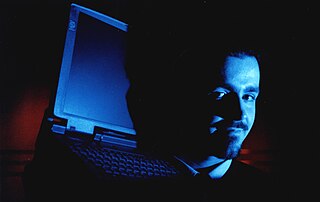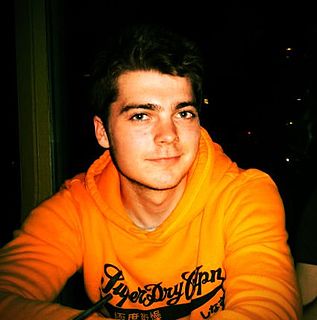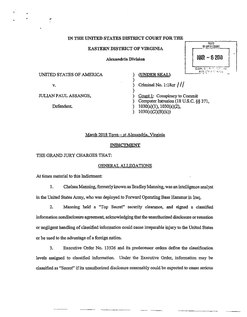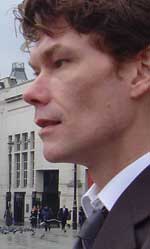
Mustafa Kamel Mustafa, also known as Abu Hamza al-Masri, or simply Abu Hamza, is an Egyptian cleric who was the imam of Finsbury Park Mosque in London, England, where he preached Islamic fundamentalist views. In 2004, Hamza was arrested by British police after the United States requested he be extradited to face charges. He was later charged by British authorities with sixteen offences for inciting violence and racial hatred. In 2006, a British court found him guilty of inciting violence, and sentenced him to seven years' imprisonment. On 5 October 2012, after an eight-year legal battle, he was extradited from the UK to the United States to face terrorism charges and on 14 April 2014 his trial began in New York. On 19 May 2014, Hamza was found guilty of eleven terrorism charges by a jury in Manhattan. On 9 January 2015, he was sentenced to life in prison without the possibility of parole.
Andrew Stuart MacKinlay is a British Liberal Democrat politician, who was the Labour Member of Parliament (MP) for Thurrock from 1992 until he stepped down at the 2010 general election.

Liberty, formerly, and still formally, called the National Council for Civil Liberties (NCCL), is an advocacy group and membership organisation based in the United Kingdom, which challenges unjust laws, protects civil liberties and promotes human rights. It does this through the courts, in Parliament and in the wider community. Liberty also aims to engender a "rights culture" within British society. The NCCL was founded in 1934 by Ronald Kidd and Sylvia Crowther-Smith, motivated by their humanist convictions.

Mathew Bevan is a British hacker from Cardiff, Wales. In 1996 he was arrested for hacking into secure U.S. Government networks under the handle Kuji. At the age of 21, he hacked into the files of the Griffiss Air Force Base Research Laboratory in New York.
Patricia Godman was a Scottish Labour Party politician who served as Deputy Presiding Officer of the Scottish Parliament from 2003 to 2011. She was the Member of the Scottish Parliament (MSP) for the West Renfrewshire constituency from 1999 to 2011.
The NatWest Three, also known as the Enron Three, are three British businessmen – Giles Darby, David Bermingham and Gary Mulgrew. In 2002 they were indicted in Houston, Texas on seven counts of wire fraud against their former employer Greenwich NatWest, at the time a division of National Westminster Bank, as part of the Enron scandal.
The UK–US extradition treaty of 2003 was implemented by the UK in the Extradition Act 2003 and came into force in April 2007 following its ratification by the US Senate in 2006.
Babar Ahmad is a British Muslim of Pakistani descent who spent eight years in prison without trial in the United Kingdom from 2004 to 2012 fighting extradition to the United States. The US accused him of providing material support to terrorism via a website that he set up in the UK in 1996 to publish stories about the conflicts in Bosnia and Chechnya, but which in 2000–2001 allowed two articles to be posted on the site offering support to the then Taliban government in Afghanistan. The US accepted that the website was operated from the UK but claimed jurisdiction because one of the servers hosting the website was located in the US. He fought a public eight-year legal battle, from prison, to be tried in Britain but the British Crown Prosecution Service concluded that there was "insufficient evidence to prosecute" him.
Ehud "Udi" Tenenbaum, also known as The Analyzer, is an Israeli hacker.
Zeus, ZeuS, or Zbot is a Trojan horse malware package that runs on versions of Microsoft Windows. While it can be used to carry out many malicious and criminal tasks, it is often used to steal banking information by man-in-the-browser keystroke logging and form grabbing. It is also used to install the CryptoLocker ransomware. Zeus is spread mainly through drive-by downloads and phishing schemes. First identified in July 2007 when it was used to steal information from the United States Department of Transportation, it became more widespread in March 2009. In June 2009 security company Prevx discovered that Zeus had compromised over 74,000 FTP accounts on websites of such companies as the Bank of America, NASA, Monster.com, ABC, Oracle, Play.com, Cisco, Amazon, and BusinessWeek. Similarly to Koobface, Zeus has also been used to trick victims of technical support scams into giving the scam artists money through pop-up messages that claim the user has a virus, when in reality they might have no viruses at all. The scammers may use programs such as Command prompt or Event viewer to make the user believe that their computer is infected.

Julian Paul Assange is an Australian editor, publisher and activist who founded WikiLeaks in 2006. WikiLeaks came to international attention in 2010 when it published a series of leaks provided by U.S. Army intelligence analyst Chelsea Manning. These leaks included the Baghdad airstrike Collateral Murder video, the Afghanistan war logs, the Iraq war logs, and Cablegate. After the 2010 leaks, the United States government launched a criminal investigation into WikiLeaks.
Events from 2009 in England

Richard O'Dwyer is a British entrepreneur & computer programmer who created the TVShack.net search engine while a student at Sheffield Hallam University.
The News of the World royal phone hacking scandal was a scandal which developed in 2005 to 2007 around the interception of voice mail relating to the British royal family by a private investigator working for a News of the World journalist. It formed a prelude to the wider News International phone hacking scandal which developed in 2009 and exploded in 2011, when it became clear that the phone hacking had taken place on a much wider scale. Early indications of this in the police investigation were not followed through, and the failures of the police investigation would go on to form part of the wider scandal in 2011.
Christopher Harold Tappin is a British businessman who is best known for selling weapons parts to Iran in violation of international sanctions and jailed for 33 months in January 2013.
Syed Talha Ahsan is a British poet and translator. He is winner of the Platinum and Bronze Koestler Awards 2012 for his poetry.

Lauri Love is a British activist previously wanted by the United States for his alleged activities with the hacker collective Anonymous.
Karen Elizabeth Todner is a British solicitor. Her clients include hacker Ryan Cleary linked with LulzSec, Gary McKinnon known as the "Pentagon Hacker", and Lauri Love.

James Slack is a British political advisor and journalist who served as the Downing Street Director of Communications for Prime Minister Boris Johnson between January and March 2021.

Julian Assange was investigated by the Eastern District of Virginia grand jury for US computer-related crimes committed in 2012. His request for political asylum was granted by Ecuador and he remained in the Ecuadorian Embassy in London from 2012 until 2019. In 2019, a US indictment from 2018 was made public following the termination of his asylum status and his subsequent arrest by the UK Metropolitan Police in London. The US indictment accused Assange of conspiracy to commit computer intrusion by helping US Army intelligence analyst Chelsea Manning gain access to privileged information, which Assange intended to publish on WikiLeaks. The charge was less serious than those levelled against Manning, and carries a maximum sentence of five years with a possibility of parole.








